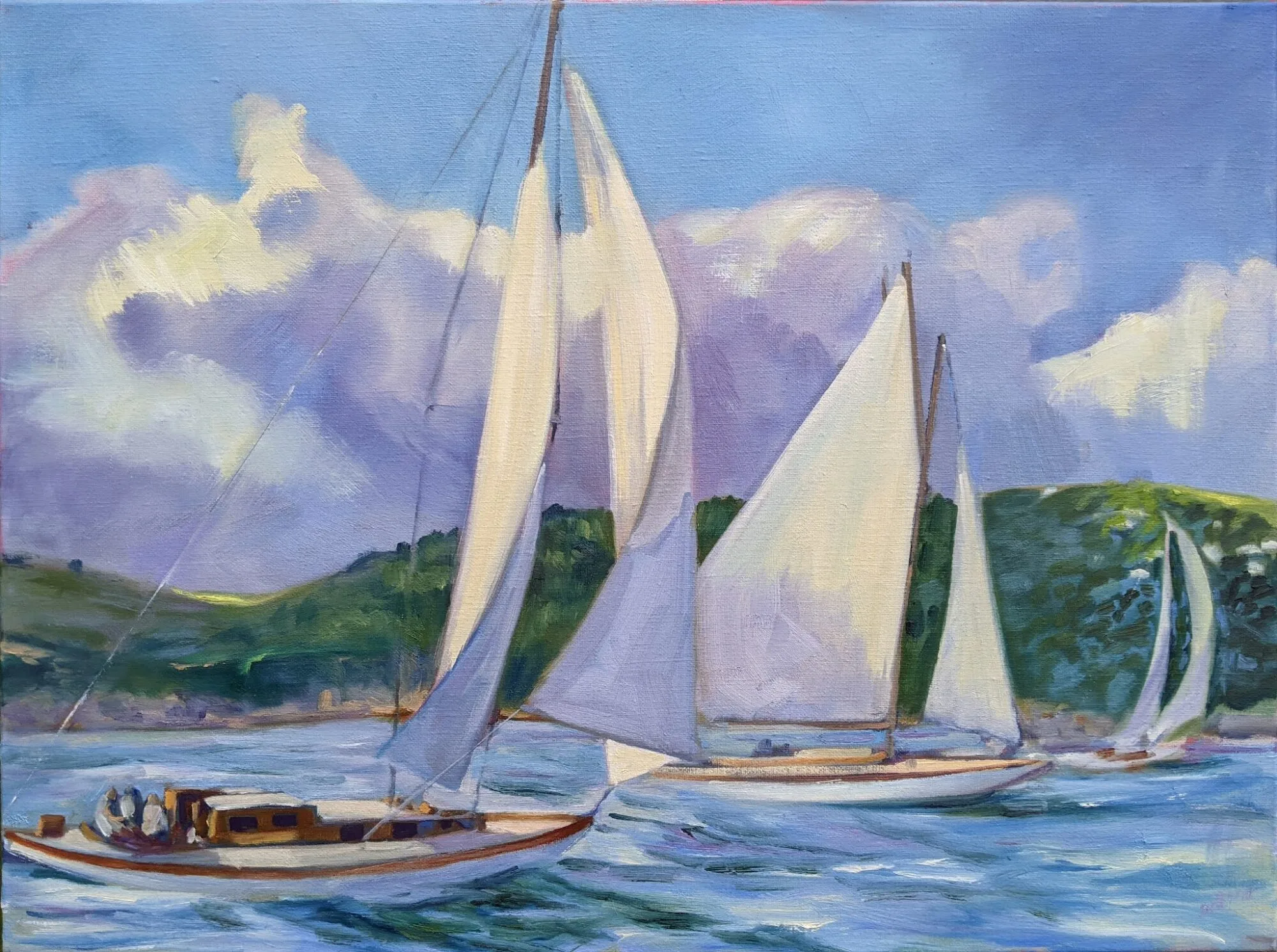“’The trick,’ said I, turning on my stool with coffee cup in hand, ‘is not to adopt a siege mentality.’”
 |
| All flesh is as Grass, 30X40, oil on linen |
The above quote is from novelist Van Reid. He was musing on the winter. I copied his essay here and I hope you will read it over your morning coffee.
The other day, I posted a night photo on Facebook. “An evening walk to church through a snowy wood? Norman Rockwell merely painted such idyllic moments; you live them,” commented my friend Roger.
The great irony is that such moments are easily accessible to us all. They surround us all the time. But if we’re inside, or inside our cars, or on Facebook, or watching television, they pass by unnoticed.
 |
| Lonely Cabin, 8X10, oil on archival canvasboard. |
I’m a habitual rambler, as the British call people who walk for fun. Walking is one of the most popular outdoor recreational activities in the United Kingdom, but it has no traction here. Part of that is because we’re too spread out. Part is that we don’t have the network of rights of way and footpaths that give access to the countryside.
But you can always find places to wander: the Erie Canal towpath in New York, or rail-to-trail access in other places, or land trust and park trails, to cite some examples. My friend Mary and I spent many happy hours rambling through the suburbs, speculating on the people behind those facades.
Rambling shows you the world through a macro lens. I see all kinds of things that are hidden from the person who zips by in a car—the fat, lazy porcupine looking for his winter billet, a hare coursing through the barrens, red winterberries after the shrub has shed its leaves.
 |
| Nighttime at Clam Cove, 9X12, oil on archival canvasboard. |
It’s taken me six years to understand the weather here, and that understanding came from being outdoors in all kinds of weather. If I walk over Ben Paul Lane and through the old farm road into Erickson Fields, I can avoid the prevailing westerlies in the bitterest weather. But in a Nor’easter, that’s inverted. It will, paradoxically, be warmest on the exposed path to the summit of Beech Hill—that is, until you make the final turn, at which point, the wind will blast the blood cells clear out of your body.
In summer, my usual treks here are filled with the noise of too many people. Americans are very gregarious people, so they share their thoughts with strangers. Petty irritations are inevitable. In winter, the same trails are empty. If we run across anyone at all, it’s likely to be someone we know.
 |
| The Late Bus, 6X8, oil on archival canvasboard. |
I observed the winter solstice in part by discussing with my intrepid daughter Mary (with whom I’ve been north of the Arctic Circle) how we might get to Svalbard. That’s the northernmost inhabited island in the world. There are times, I speculated, that the sea ice might be solid enough for us to drive. “Yeah, but it’s dark then,” she pointed out.
My family are all bred-in-the-bone northerners, going back now several generations. “It does not mean that we have more character than anyone else, only that winter is an integral part of our character,” Van wrote.



